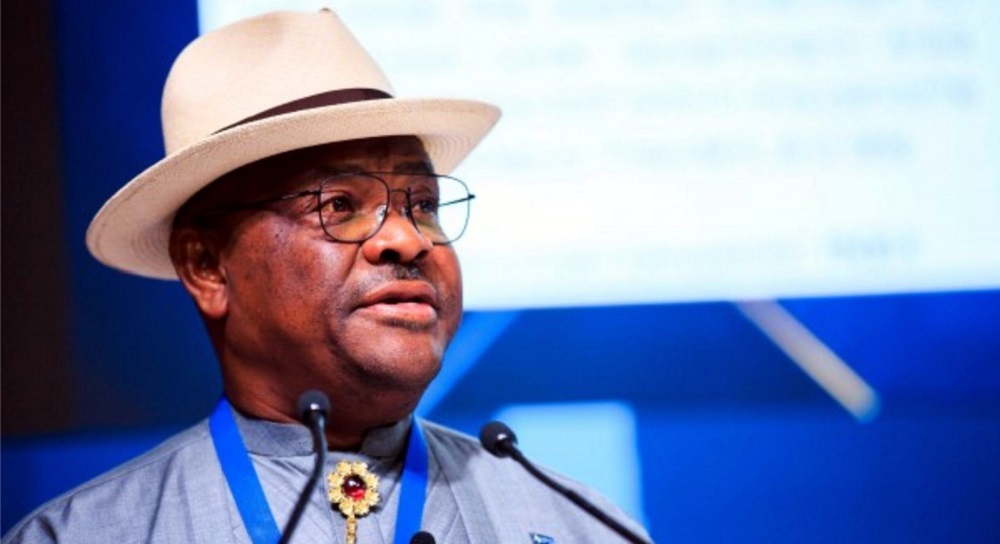News
SEE List of merged MDAs, scrapped agencies of govt

The Federal Executive Council (FEC) has approved the merging, scrapping and subsuming of some Ministries, Departments and Agencies (MDAs) of Federal Government in line with its policy of reducing cost of governance.
The Federal Executive Council (FEC) has approved the merging, scrapping and subsuming of some Ministries, Departments and Agencies (MDAs) of Federal Government in line with its policy of reducing cost of governance.
Hajiya Hadiza Bala-Usman, Special Adviser to the President on Policy Coordination, unveiled some of the merged, subsumed and scrapped MDAs at the end of the FEC meeting on Monday, February 26, 2024.
She said the decision was based on the Steve Oronsaye Report on civil service reforms inaugurated under former President Goodluck Jonathan in 2014.
With the new arrangement, the Nigerian Army University in Borno State will be merged with the Nigerian Defence Academy (NDA). The university will now functions as a faculty within the Academy.
Similarly, the Air Force Institute of Technology will also be merged with the Nigerian Defence Academy to function as the faculty of Nigerian Defence Academy.
Also, the Infrastructure Concession and Regulatory Commission is to be merged with Bureau of Public Enterprise and be rechristened as `Public Enterprises and Infrastructural Concession Commission.
The Federal Radio Corporation of Nigeria is to be merged with the Voice of Nigeria while the National Commission for Museum and Monuments is to be merged with the National Gallery of Acts.
She said the National Theatre is to be merged with National Troupe of Nigeria while the National Meteorological Development Centre is to be merged with the National Meteorological Training Institute.
National Agency for Control of HIV/AIDS (NACA) is to be merged with the Centre for Disease Control in the Federal Ministry of Health while National Emergency Management Agency (NEMA) is to be merge with the National Commission for Refugee Migration and Internally Displaced Persons.
The Directorate of Technical Cooperation in Africa will be merged with the Directorate of Technical Aid and to function as a Department in the Ministry of Foreign Affairs.
Nigerian Investment Promotion Commission is to be merged with Nigerian Export Promotion Council while the National Agency for Science and Technology and Science and Engineering Infrastructure is to be merged with National Centre for Agricultural Mechanisation and the Project Development Institute.
The Special Adviser further said that the National Biotechnology Development Agency will be merged with the National Centre for Genetic Resource and Biotechnology.
She said the National Institute for Leather Science Technology will be merged with the National Institute for Chemical Technology while the Nomadic Education Commission will be merged with the National Commission for Mass Literacy, Adult Education and Non-formal Education.
On the agencies to be subsumed, Bala-Usman said the Service Compact with Nigeria (SERVICOM) will be subsumed to function as a department under the Bureau of Public Service Reform.
She said the Border Communities Development Agency will be subsumed to function as a department under the National Boundary Commission.
National Salaries, Income and Wages Commission is to be subsumed under Revenue Mobilisation and Fiscal Commission. The National Assembly will need to amend the constitution as RMAFC was established by the Constitution.
The Institute for Peace and Conflict Resolution is to be subsumed under the Institute for International Affairs.
The Public Complaints Commission is to be subsumed under the National Human Rights Commission while the Nigerian Institute for Trypanosomiasis to be subsumed into the Institute for Veterinary Research.
The National Medicine Development Agency will be subsumed under the National Institute for Pharmaceutical Research and Development while the National Intelligence Agency Pension Commission to be subsumed under the Nigerian Pension Commission.
On the agencies to be relocated, the Presidential aide said the Niger Delta Power Holding Company to be relocated to the Ministry of Power while the National Agricultural Land Development Agency (NALDA) to be relocated to the Federal Ministry of Agriculture and Food Security.
Federal Ministry of Science to supervise a new agency that combines NCAM, NASENI, and PRODA
The National Blood Service Commission will be converted into an agency and relocated to the Federal Ministry of Health while the Nigerian Diaspora Commission is to be converted into an agency and to be relocated to the Federal Ministry of Finance.
Pension Transitional Arrangement Directorate (PTAD) to be scrapped and functions to be taken over by Federal Ministry of Finance.
Bala-Usman said the President had constituted a committee that would work within 12 weeks, to ensure that necessary restructuring and legislative amendments needed to ensure full actualisation of these approvals were granted.
The committee comprises Secretary to the Government of the Federation, Head of the Civil Service, Attorney General and Justice Minister, Budget and Planning Minister, DG Bureau of Public Service Reform, Special Adviser to the President on Policy Coordination, Special assistant to the president on National Assembly. The Cabinet Affairs Office will serve as the secretariat.
News
Po!n, betting sites recorded 162m Nigerian visitors in June – Report

A report by global data and business intelligence platform, StatiSense, has revealed that more than 162 million Nigerians visited porn and betting websites in June 2024.
According to the platform’s most recent data, which lists the top ten websites that Nigerians saw on their mobile devices in June, a sizable percentage of this traffic visited websites with gambling and pornographic content.
A post on StatiSense’s official X page revealed that a variety of search engines, social media apps, and betting platforms were among the most popular websites.
Notably, two pornographic websites, Xvideos and Xnxx, came in second and sixth place respectively with a total of 80.18 million visits.
In addition, Nigerian mobile users visited sporting websites 176.83 million times. Of these, 83.1 million visits were allocated to sports betting sites Sportybet and Bet9ja, which secured third and fourth places on the list.
Google and Facebook were also among the sites that featured prominently in the report.
News
Reps hail Wike, Tamuno over AICL’s improved revenue, infrastructure

Members of the House of Representatives’ Committee on FCT, led by Hon. Aliyu Muktar Betara have applauded the Minister of Federal Capital Territory (FCT), Nyesom Wike over ongoing infrastructural development projects across the nation’s capital city.
The lawmakers who spoke during an interactive session with the Group Managing Director of Abuja Investment Company Limited (AICL), Dr. Maureen Tamuno applauded her ingenuity towards improved revenue generation since her assumption of office.
While presenting her scorecard and strategy adopted in the turnaround of Abuja Investment Company Limited to the Committee, Dr. Tamuno disclosed that AICL only manages the district markets, not the entire markets across the territory.
According to her, Wuse Markets is owned 90 percent by the individuals who bought the shops while AICL owns 10 percent.
“For example, Wuse Market is owned 90 percent by the owners, we own 10 percent. What Abuja Management does for Wuse market is to manage the facility there through the toll taking which they do collect on our behalf and then they manage the facilities, they manage the refuse collections and they also work with the market association.”
News
Tinubu serious in solving economic crisis — Wike

Minister of Federal Capital Territory (FCT), Nyesom Wike on Friday said President Bola Ahmed Tinubu is serious in solving the economic crisis in the country.
Wike gave the assurance during the inspection of the ongoing construction of the 7.3 kilometers Gaba/Tokulo road in Bwari Area Council.
He pleaded with Abuja residents to give the present administration the needed support to deliver the dividends of democracy.
Addressing reporters during the inspection visit, the FCT Minister expressed satisfaction with the speed and quality of work on the road project and assured that it will be adequately funded to ensure its timely completion by December this year.
The Minister who revealed that the project was 40 percent complete, said about 70 percent of the contractual sum has been paid to the contractor by the FCT Administration and expressed confidence in the capacity of the contractor to deliver the project within the agreed schedule.
Wike further disclosed that the Gaba/Tokulo road, when completed, will not only enhance transportation in the rural parts of the FCT, but will also improve food security in the nation’s capital by providing access to the farmlands, as well as access to the markets.
He also stressed the commitment of the FCT Administration to providing infrastructure in the FCT Area Councils, in line with the Renewed Hope Agenda of President Bola Ahmed Tinubu.
Wike said: “So many people have thought that we are only concentrating in the city. Yesterday, we were in Saburi, today we are in Bwari. Tomorrow, we will be in Kuje, so that people will understand that while we are doing in the city, we are also carrying out development in the satellite towns and the rural areas because by the Renewed Hope Agenda, development is not only to be concentrated within the city but also to take to the rural areas in order to improve the economy.
“Here is an agrarian area; without this road, how are they going to move their goods? And this is part of the problems we have in terms of food insecurity. People are talking about shortages of food, but if we don’t have means of transportation, that is also a problem.
“We are trying to solve that problem of transportation for farmers to be able to go and bring whatever they have produced for people to consume or to buy”.
Wike, while thanking the people of Bwari for their support for the government, also reiterated that President Tinubu was committed to addressing the economic problems of the country and called for their continued support.
He said: “We thank the people of Bwari and we want to also let them know that the government of President Tinubu is serious about solving the economic crisis we have. All we urge Nigerians is just to be patient.
-

 News23 hours ago
News23 hours agoNationwide protest: ‘Airport Is Filled Up, Govs, Senators, Reps, Ministers Traveling Abroad’ — Fayose
-

 Politics15 hours ago
Politics15 hours agoBreaking! LP crisis takes fresh twist as ‘new’ chairman emergesl
-

 News16 hours ago
News16 hours agoLP blows hot gives Akpabio 72hrs to declare Senator Onyewuchi’s seat cacant for dumping party for APC
-

 News15 hours ago
News15 hours agoJust in: DSS moves against organisers of protest, freezes bank accounts as group set to file legal action against UBA
-

 Opinion4 hours ago
Opinion4 hours agoFuel Challenge In Nigeria: Modular refineries to the rescue?
-

 News16 hours ago
News16 hours agoSEE Dollar to naira exchange rate today at black market
-

 News3 hours ago
News3 hours agoAraraume mourns Iwuanyanwu, says Nigeria has lost a genuine patriot
-

 News12 hours ago
News12 hours agoFinally, IGP approves hunger protests across Nigeria








